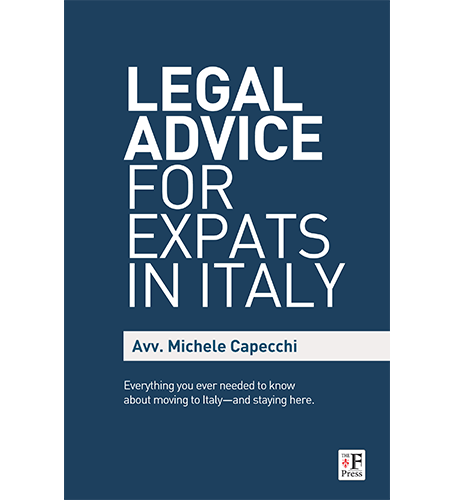Over the past two years, while the world was struggling with lockdown restrictions and many of us were forced to work from home, my law firm faced an unprecedented number of requests from people internationally wishing to move their life, family and business to Italy as soon as possible. A new visa scheme for digital nomads is about to make that move easier.

Each person had his or her own reasons, but many of them shared the idea that since I can now work remotely and I can choose where to set up my business, I’d rather do it in Italy, where the cost of living and the quality of life is unparalleled. Probably one of the few “positive” things that Covid will leave behind is the flexibility that many people can now work wherever they want.
What should foreign professionals do and know if they intend to establish their professional life in Italy? Over the years, I’ve covered the self-employment visa on many occasions in The Florentine, but it is still worth remembering some basic principles.
In Italy, the rules and requirements to obtain a self-employed work visa are set by the consolidated immigration law and a legislative decree (known as Decreto Flussi), enacted annually by the government that sets the specific conditions to work as liberi professionisti or imprenditori as well as the maximum number of applications that are accepted every year (known as quotas).
Under the current rules, if the applicant does already not live in Italy, legally under a different visa scheme, the application must be submitted at the Italian Consulate of the place of permanent residency. This means that if you’ve entered Italy as a tourist, you will have to go back to your home country to apply for your work visa. You cannot apply in Italy, during your 90-day period as a tourist.
Additionally, the self-employed visa application (besides a few exceptions set out in art. 27 et seq. of the immigration law) can be submitted only when the Decreto Flussi sets the new quotas. As quotas are released annually (but we don’t know when) and because the process of compiling all the documentation takes a few months, we always recommend to start working as soon as possible in order to be ready when the quotas are announced and before they are already over. While it seems complicated (and it is indeed tricky seen from the outside!), under this scheme, we have helped hundreds of clients to successfully obtain work visas through the Italian Consulates and move their businesses in Italy in a matter of a few months.
So, what’s the big news? The new visa scheme for digital nomads!
In recent days, the Italian government has enacted a new bundle of economic measures (Decreto Sostegni Ter) to help the Italian economy to recover from Covid.
One of these measures aims to ease the process of obtaining a work visa for highly qualified professionals, who can carry out “highly qualified work activities through the use of technological tools, that allow them to work remotely, autonomously or for a company that is not based in the territory of the Italian state”.
The new proposed visa scheme adds a new paragraph under art. 27 of the consolidated immigration law (art. 27 lett. q-bis), and it is aimed at highly qualified digital nomads or professionals who can work remotely.
The new proposal does not yet define what requirements must be met to be considered a “highly qualified professional”, but given that this category is included under art. 27 (which covers other special cases of visas outside the quotas for other qualified professionals), we can assume that they must hold agraduate or a Master’s degree, and be able to show a minimum number of years of previous experience in that field. A tax return (from the home country) that shows a minimum gross income generated with the same business over the previous year is also often requested. The other requirements announced so far are that the person will need private healthcare insurance and will have to comply with the fiscal and tax-related regulations that apply to any worker who is based in Italy.
However, the amazing news about this new work visa is that, if the legislative decree is confirmed, the new visa will be granted outside the quota restrictions (which means that the application can be started anytime) and the “nulla osta” can be skipped (which is obtained locally from the immigration office). Additionally, the part of the proposal that states “or for a company that is not based in the territory of the Italian state” leads us to believe that applicants could continue their employed activity with the current (even foreign) employer. This part of the proposed law is unique and we are waiting for clarifications in this respect.
As explained, we still need to wait for the implementing rules that will determine the exact requirements for issuing this visa to digital nomads (what categories of highly qualified workers will be eligible; the minimum income that they will have to show; and what evidence they will have to provide to prove that they are “highly qualified professionals”). But at the end of the day, this is great news that confirms the different measures (including from fiscal point of view) introduced by the Italian government to reduce the “brain drain” and attract qualified professionals to Italy.
For those who have been working in the digital technology environment for many years, this could be really a new route to take in order to move their businesses in Italy without having to worry about the quota restrictions. Nevertheless, for those who do not meet the minimum conditions set out by the new law (or who don’t want to wait for the implementing rules of this new law), it is still possible to use the current tools to come and work in Italy under the work visa scheme for many freelancers and entrepreneurs.
Stay tuned for more information about this new visa and get in touch with us (info@capecchilegal.com) for any further clarifications.








